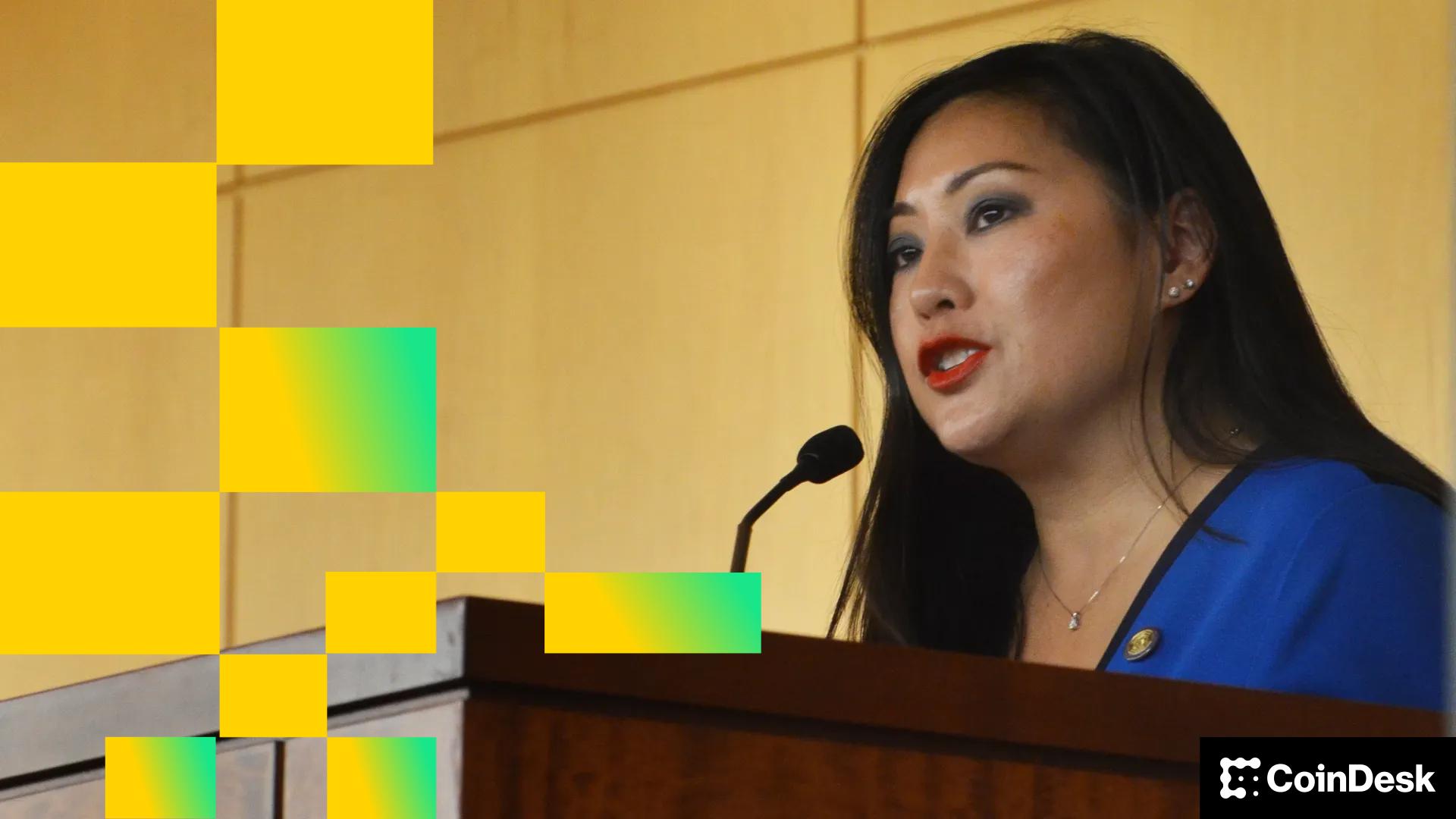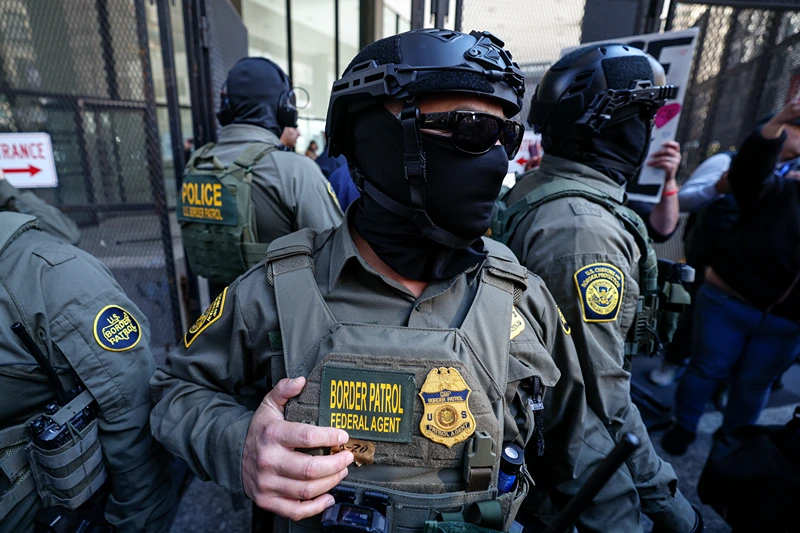The U.S. Congress has long been trying to grant the Commodity Futures Trading Commission (CFTC) more direct authority over crypto spot markets. Despite this, the agency is forging ahead without new legislative powers. Interim chief Caroline Pham is currently in talks with regulated exchanges to launch spot crypto products as soon as next month, according to sources with direct knowledge of the plans.
Even during the federal government shutdown—which has delayed many crypto policy efforts in Washington—Pham has been meeting personally with multiple financial platforms interested in listing spot crypto contracts. The CFTC is also considering issuing further guidance on how to approach spot crypto trading, building on Pham’s public position that the agency already has ample legal authority to regulate these markets.
Pham, who is expected to be replaced by President Donald Trump’s nominee for CFTC chairman, SEC crypto official Mike Selig, is actively overhauling the agency’s internal structure and enforcement division. She is also advancing toward a tokenized collateral policy expected to be announced by early next year.
The agency’s most immediate focus is overseeing new retail spot products on regulated platforms—acting without new legislation from Congress. “As we continue to work with Congress on bringing legislative clarity to these markets, we are also using existing authorities to swiftly implement recommendations in the President’s Working Group on Digital Asset Markets report,” Pham said in a statement to CoinDesk. “I’m excited about new products that we expect to begin trading in our markets before year’s end, and am working to ensure a smooth transition for President Trump’s nominee for permanent CFTC chairman.”
### Spot Trading in Crypto Commodities
Spot trading in commodities refers to the immediate trading of actual assets rather than futures contracts. In this context, it includes digital asset transactions in tokens such as Bitcoin (BTC) and Ethereum’s Ether (ETH). This area has been a major regulatory question at the center of industry lobbying efforts in Washington.
Many lawmakers and Pham’s Democratic predecessor at the agency have argued that Congress needs to grant the CFTC explicit oversight powers over spot crypto markets. However, if Pham leads CFTC-regulated exchanges toward leveraged trading of assets like Bitcoin and Ether, she could potentially circumvent some legal hurdles. This move might also encourage institutional investors to increase their crypto exposure by accessing these products on regulated venues that offer familiar protections.
Kris Swiatek, a lawyer at Seward & Kissel who advises asset managers on digital assets, said in an interview, “By being able to access such crypto products on a regulated venue that is subject to familiar protections, these institutions and other sophisticated market participants may be more willing to gain or increase their crypto exposure because it’s available somewhere that has regulated protections that they’re used to.”
### Leveraged Spot Crypto Trading
Crypto commodity trades involving margin, leverage, or financing would take place on designated contract markets (DCMs), which operate under full traditional commodity regulation. This framework provides investors with additional assurance and regulatory protections.
Though this push leaves many regulatory questions for future U.S. market structure legislation to address, it represents a significant step forward. While the agency declined to specify which exchanges may lead this effort, sources say that DCMs already active in crypto are expected to be the quickest to launch these products. Crypto-native companies such as Coinbase and Bitnomial hold DCM status, as do prediction-market platforms like Kalshi and Polymarket.
Cody Carbone, CEO of the Digital Chamber—which advocates for favorable crypto policies in Washington—said, “Recent work by the CFTC on spot market regulation is particularly encouraging. Because market structure in many ways depends upon Congress reopening the government, agencies directed by the president’s executive order and task force recommendations have to step up.”
### Jurisdiction and Coordination with the SEC
The better-known U.S. Securities and Exchange Commission (SEC) has drawn the majority of crypto attention in recent years due to its aggressive stance on the industry’s business practices. However, the smaller CFTC likely has jurisdiction over the vast bulk of digital asset token transactions.
Even former pro-crypto SEC chairman Paul Atkins, appointed by President Trump, has acknowledged that the majority of assets in the sector are not securities and thus fall outside the SEC’s purview.
Recently, leaders from the SEC and CFTC announced a collaborative approach to new product offerings, guiding their regulated exchanges in understanding that certain crypto commodity spot trading is permissible—if done properly and in consultation with regulators.
Because Pham is exempt from current constraints on federal-worker activities, she has been able to hold meetings and guide private-sector firms directly, according to sources.
### Regulatory Support from Industry Leaders
Andreessen Horowitz (a16z), a leading investor in crypto projects, expressed support for the CFTC’s public guidance. In a recent comment letter, the firm stated that the guidance “represents a crucial opportunity to reverse this trend of offshoring by providing American retail investors with access to leveraged spot crypto products within a comprehensive regulatory framework that maintains the high standards of market integrity and investor protection that characterize U.S. derivatives markets.”
### Stablecoin Collateral Policy
Another near-term policy shift under consideration would allow the use of stablecoins as allowable tokenized collateral in the derivatives market. This policy is expected to receive final approval by the second quarter of next year.
It is likely to begin as a pilot program at U.S. clearinghouses, with stringent oversight, including additional disclosures on position sizes, large traders, trade volumes, and more comprehensive reporting on operational incidents.
Pham, who has long advocated for tokenized collateral, has described this development as a “killer app” for stablecoins.
### Agency Restructuring and Enforcement Overhaul
Since taking office earlier this year, Pham has overseen significant restructuring at the CFTC. Amid government shutdowns and staff reductions, she has canceled expensive service contracts and launched initiatives such as her “crypto sprint,” accelerating digital asset policy development despite her interim status.
Her restructuring includes revamping the enforcement division, which has actively pursued crypto-related cases in recent years. Pham aims to establish a dedicated unit of eight to nine trial lawyers, potentially recruiting former Department of Justice prosecutors to bring courtroom expertise to the commission.
To stretch the agency’s budget, Pham has discussed hiring legal staff in lower-cost regions, such as Kansas City.
### Leadership Transition and Future Prospects
Pham has coordinated her departure plans with the administration and agreed to remain in her role until a permanent chairman is confirmed. Her tenure extension followed the withdrawal of the president’s first choice, former Commissioner Brian Quintenz, amid controversy. Meanwhile, Senate negotiations around the government shutdown continue to delay confirmation proceedings.
Sources close to MoonPay, a U.S.-based crypto infrastructure provider, indicate that Pham plans to join the company as chief legal officer and chief administrative officer after leaving the CFTC, following a trend of former commissioners moving into the digital asset space.
Other notable former CFTC figures include Summer Mersinger, now CEO of the Blockchain Association; Brian Quintenz, working on policy at a16z Crypto; and former Chairman J. Christopher Giancarlo, a Digital Chamber board member and author known as “CryptoDad.”
Though the timing of Mike Selig’s Senate confirmation remains uncertain, industry insiders expect him to continue pursuing crypto-friendly policies. Selig has been a key SEC staffer on Project Crypto, which coordinates closely with the CFTC.
### Recruiting Experienced Leadership Amid Unusual Circumstances
Pham’s position as the sole commissioner—unusual for an agency designed to have five commissioners—places her in a role similar to that of a lone director, akin to the Consumer Financial Protection Bureau or the Office of the Comptroller of the Currency.
Crypto lobbyists and legal experts have expressed some unease about the legal strength of policy decisions made by a solo Republican chairman, especially as the Trump administration seeks to minimize opposition-party representation in federal agencies.
Currently, the only formal crypto rulemaking in progress at the CFTC involves amending agency rules to incorporate blockchain technology—a technical effort spanning multiple regulatory areas.
Pham summarized the agency’s approach, saying, “In the first few months of this administration, we’ve focused on getting back to basics at the CFTC, streamlining operations, and preparing for expanded oversight in the digital asset space.”
This approach has been welcomed by crypto firms. Coinbase’s chief policy officer, Faryar Shirzad, said, “We’ve been very pleased with the degree to which she’s put critical work streams in motion,” adding that Pham has been “really open to companies like our own to be able to provide input into the agency’s work.”
### Looking Ahead
Pham and Selig have been in contact as he prepares for the confirmation process. If confirmed, Selig is widely expected to maintain a crypto-friendly policy stance.
The industry has long awaited clearer regulation to unlock major investment dollars currently waiting on the sidelines. Government support in the past year has advanced this goal, and CFTC’s push on spot trading could provide an additional boost in investor confidence.
Kris Swiatek noted, “There’s been a lot of chatter about this, generally from traditional players. It gives them an opportunity to compete for business from folks that want to get exposure to digital assets without having to necessarily leave the traditional finance framework.”
He predicted “a lot of potential movement there,” emphasizing that “everybody’s ultimately competing for a piece of this growing ecosystem.”
https://bitcoinethereumnews.com/crypto/cftcs-pham-moves-to-launch-spot-crypto-trading-without-congress/


